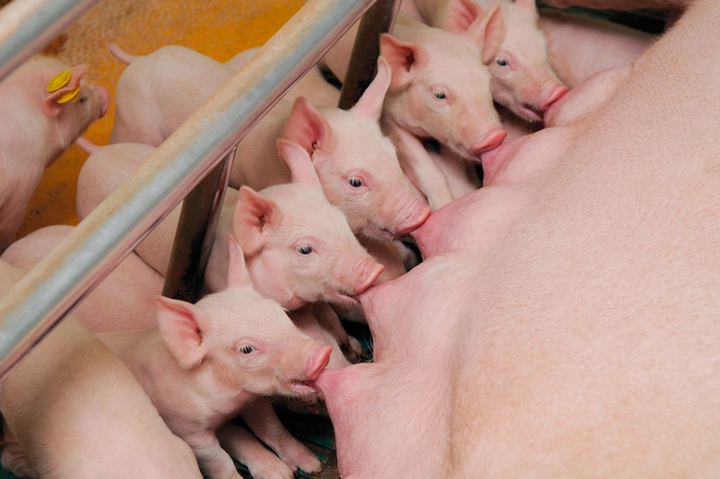PIGLETBIOTA project
 Sow nursing her piglets
Sow nursing her piglets
Title
An integrative biology-based study of the influence of intestinal microbiota composition on piglet robustness at weaning in a perspective of a limited use of antibiotics in livestock production
Project coordinator
Host institution
Génétique, Microbiote, Santé (GeMS), Animal Genetics and Integrative Biology (GABI), INRA, Jouy-en-Josas, France
Funding source
National Agency for Research (ANR)
Amount
793 719 €
ID
Abstract
The future challenge in animal production will be to provide food to a growing human population by respecting a balance between quality products, consumer acceptance and safety, as well as animal welfare. In a perspective of safe and sustainable food systems, reducing the use of antibiotics in livestock is a major concern. In fact, antibiotic resistance is one of the major medical challenges of the 21st century. The transfer of genes conferring resistance through the environment and the food chain, the potential for development of resistant bacteria and the appearance of therapeutic failures in human medicine, notably due to zoonotic bacteria, constitute major health issues for livestock farming sectors.
In the pig breeding industry, the weaning period is often accompanied by a decreased growth rate caused by disparate food intake and diarrhoea due to digestive disorders that might be associated with bacterial population disequilibrium (i.e. dysbiosis) and/or opportunistic intestinal infections. Alarmingly, during this transition period the prophylactic use of antibiotics is still very frequent in order to limit piglet morbidity and mortality. Thus, reducing the prophylactic use of antibiotics in weaning pigs is a main issue and there is a strong need for alternatives. In this context, we have built a public-private partnership that gathers INRA scientists and industries from economic sectors of both animal feeding and pig breeding. PigletBiota is a precompetitive project that will study the physiological and genetic bases of the piglet sensitivity at weaning, as a prerequisite to identify innovative actions to adapt animals and pig production systems to a reduction of antibiotic use.
The global aim of the PIGLETBIOTA project is to develop research that will contribute to adapt pig production systems to a reduction of antibiotics. The project proposes an integrative biology approach to determine the main factors influencing the variability of the individual’s robustness at weaning. We will monitor piglets for health, immune, stress and zootechnical traits and will characterize the intestinal microbiota diversity and composition as well as the contribution of host’s genotypes. The experimental design will combine various environments, including experimental and commercial farms, and ages at weaning and all animals will be fed without antibiotics. Animals (n~1000) will be clinically surveyed, measured for various traits related to production, immunity and stress, and genotyped with high-density SNP chips. The genetic parameters of the sensitivity at weaning will be estimated and genetic association studies performed. Faecal samples before and after the weaning date will be collected for characterizing the dynamics of the gut microbiota and studying its influence on the individual sensitivity at weaning. Animal and microbiota data will be vertically integrated in order to better understand the interplay between the these two levels of this biological system, and to develop robust indicators of weaning sensitivity. Finally, a functional screening using INRA platforms dedicated to human studies will be performed in order to detect active molecules to be tested in vivo and by using an axenic pigs model. The PigletBiota public-private consortium will favor translational research and innovation.